Happy Monday! A pair of hikers in the Czech Republic’s Krkonoše Mountains recently stumbled upon an aluminum can filled with jewelry and gold coins worth an estimated $680,000. If your wallet is already feeling the effects of tariffs, it sounds like treasure hunting might be a viable side hustle.
Quick Hits: Today’s Top Stories
- The Iranian-backed, Yemen-based Houthi rebels successfully launched a ballistic missile into Israel on Sunday, hitting a parking lot near the country’s main airport and injuring eight people. Israel’s air defenses were unsuccessful in intercepting the incoming projectile despite “several attempts,” according to the Israeli military, which typically thwarts around 95 percent of missiles launched at Israel by the terrorist group. On Sunday, Israeli Prime Minister Benjamin Netanyahu pledged to hold both the Houthis and their Iranian sponsors responsible for the attack. Meanwhile, U.S. fighter jets reportedly carried out some 10 airstrikes in and around Yemen’s capital of Sanaa overnight.
- The Israeli army has started calling up tens of thousands of reservists in preparation for expanded operations in the Gaza Strip, military officials said Sunday. After a U.S.-brokered ceasefire and hostage release deal collapsed in mid-March, Israel resumed more limited incursions into the Strip. Israeli officials have said the current phase of the war is intended to pressure Hamas into another hostage deal, but Netanyahu indicated Thursday that destroying the terrorist group—not freeing the abductees—is the “supreme objective” of the ongoing fighting.
- Australian Prime Minister Anthony Albanese of the center-left Labor Party won a second term in the country’s general elections on Saturday. The day saw a significant defeat for the conservative Liberal Party in Australia, which was initially in the lead. However, voters began associating party leader Peter Dutton with President Trump as he criticized “wokeness” and advocated for significantly tougher immigration policies. The election marks the first time in 21 years that an incumbent has won reelection in Australia.
- U.S. District Judge Beryl Howell on Friday struck down President Trump’s executive order targeting law firm Perkins Coie, saying it was “not a legitimate use of the powers of the U.S. government or an American President.” The Trump administration singled out the law firm over its work with Democratic presidential candidate Hillary Clinton in 2016 and its involvement in the Steele dossier. Among other penalties, the order banned Perkins Coie employees from federal buildings, revoked their security clearances, and required agencies to end government contracts with Perkins Coie clients. So far, nine law firms have cut deals with the Trump administration to avoid retaliation for their political associations, while three others have sued the administration, with judges issuing rulings to temporarily block the orders from taking effect.
- Trump signed an executive order late Thursday ordering the Corporation for Public Broadcasting to cut funding for NPR and PBS, calling the two media organizations “biased” and “partisan.” NPR states that only 1 percent of its budget comes from federal funding, while PBS receives 15 percent of its budget from the federal government, with federal dollars making up 40 to 50 percent of funding for certain stations in rural areas. In a statement, the CEOs of NPR and PBS said that they will fight the order “using all means available.”
- The U.S. Chamber of Commerce, the largest lobbying group in the U.S. that often favors economic policies enacted by Republicans, sent a letter on Thursday to several Trump administration officials asking for relief for businesses struggling to absorb the effects of Trump’s tariffs. Chamber President and CEO Suzanne P. Clark asked the administration for tariff exclusions on any “small business importer” in the U.S. that do not have the “margin or capital reserves” to absorb the tariffs’ high costs; for exclusions on products that cannot be produced in the U.S. such as bananas and coffee; and for a process for companies to be granted exclusions if the tariffs will result in widespread job losses. “The Chamber asks that the administration take immediate action to save America’s small business and stave off a recession,” Clark said in the letter.
Terror Attack Sparks New Tensions Between India and Pakistan
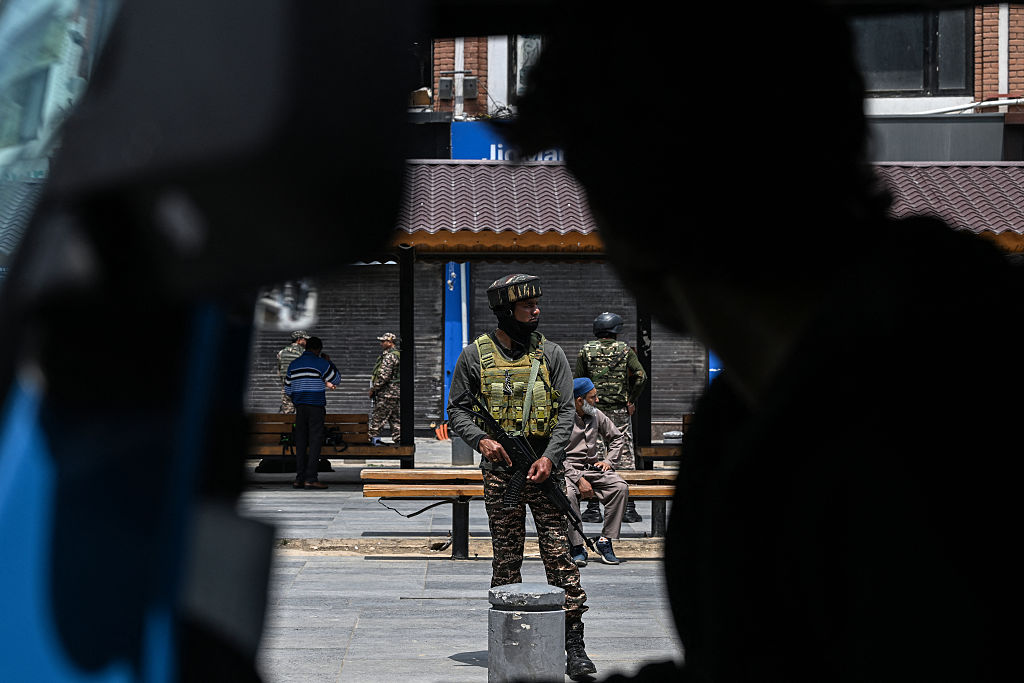
In the last few years, Kashmir, the majority-Muslim region lying on the border between Pakistan and India and known for its agricultural output and textiles, has become a tourist attraction for many Indians seeking to enjoy its stunning mountains and valleys.
But on April 22, the tourism industry became the source of one of the deadliest terror attacks in recent Indian history, reminding onlookers that Kashmir has also long been a source of conflict between India and Pakistan. In the scenic meadows of the Baisaran Valley, armed militants descended on crowds of tourists, first firing indiscriminately, then reportedly began executing men who could not recite passages from the Quran. At least 26 people were killed.
With many in India quickly blaming Pakistan’s military, for the third time in 10 years the two nuclear-armed powers are standing at the brink of open conflict.
India has vowed to find and punish the perpetrators. Officials released the names of three of the four attackers they suspected of carrying out the massacre, arrested more than 1,500 people in Kashmir, and destroyed homes linked to alleged militants. The Resistance Front, a small group that may simply be a front for the larger Kashmiri terrorist organization Lashkar e-Taiba, has claimed responsibility for the attack. Both groups have reported links to hardline elements in Pakistan’s powerful military intelligence agency, Inter-Services Intelligence.
“We will pursue them to the ends of the Earth,” Indian Prime Minister Narendra Modi vowed days after the attack. In the weeks since, India has revoked visas for Pakistani nationals, withdrawn diplomatic personnel from Pakistan, canceled all inbound flights from the country, and closed the only open border crossing.
More drastic measures are also on the table. Since the terrorist attack, Indian and Pakistani troops have been skirmishing along the Line of Control, the de facto border dividing Kashmir that was established in 1971. India has also suspended the decades-old Indus Water Treaty, an agreement for India and Pakistan to share water from the Indus River, in theory threatening the water supplies of millions of Pakistanis (although experts note that a blockade would take years to actually implement).
If history is any guide, India is likely to carry out some sort of military operation against Pakistan. The two countries have clashed over violence in Kashmir multiple times in recent years. In 2016, four Islamist terrorists from Pakistan attacked an Indian Army barracks in the town of Uri, killing 19 soldiers and injuring 19 more. Three years later, 40 policemen were killed when a suicide bomber struck a convoy of vehicles. Both attacks were carried out by Jaish-e-Mohammed, an Islamist group based in Pakistan that aims to split off Kashmir from India and make it part of Pakistan.
India attacked Pakistan in retaliation each time, with escalating force. In 2016, it conducted surgical strikes on alleged militant targets in Pakistani-administered Kashmir, and in 2019, it hit targets inside Pakistan proper, as Indian and Pakistani troops exchanged heavy fire along the Line of Control. The Indian government claimed it had killed 350 militants (which the Pakistanis and international journalists denied), but one of its fighter jets was shot down. The pilot, Abhinandan Varthaman, survived and returned to India with a hero’s welcome.
But unlike previous attacks, last month’s targeted civilians. Kashmiri militants have historically struck military or police targets, rather than ordinary people like the tourists who were killed last week.
There’s now concern that horror over the massacre will turn into anger at Muslims writ large. Groups associated with the Hindu nationalist movement in India see a vindication of their worst fears in the attacks. “This is an attack by Islam on Hindus and India! These Islamic terrorists should be killed like pigs,” Vishnu Gupta, an Indian parliamentarian and leader of the nationalist group Hindu Sena, said on X after the attacks. He later threatened that Indians would “respond in kind” against “every Muslim in India” if the government failed to respond. “This is not merely a terrorist act but an Islamic terrorist act,” he said. “If the government does not take action against the militants and their sympathisers, there will come a day when Hindus will react just as brutally against Muslims across India.” Modi is himself a longtime member of the Rashtriya Swayamsevak Sangh, or RSS, a Hindu nationalist paramilitary group.
“It’s an opportunity for him and his supporters to consolidate a particular narrative,” Irfan Nooruddin, a professor at Georgetown University’s Walsh School of Foreign Service, told TMD. But that same narrative introduces risks for Modi as well. Because of the fierceness of his and others’ political rhetoric, as well as his image as a protector of Hindus against the Muslim threat, the prime minister risks being propelled into a response that goes beyond the surgical strikes of 2016 or the more extensive (and far riskier) retaliation of 2019.
For many in India, the response needs to drive home to Pakistanis that terrorist attacks on India, even if only indirectly linked to the Pakistani government, will incur significant costs. “The issue now for India is how to create a new level of deterrence,” Harsh V. Pant, the vice president of studies and foreign policy at the Observer Research Foundation, a New Delhi-based think tank, told TMD. “How do you raise the cost for Pakistan?” India’s military is significantly more capable than in 2019, with upgraded air defense systems from Russia and new fighter jets from France, with new capabilities for drone and missile strikes.
But if there are reasons for India to retaliate more forcefully this time, the same applies to Pakistan. In 2019, Pakistan was willing to seek a peaceful resolution to the conflict with Modi. But now the head of Pakistan’s army, Asim Munir, might opt to show greater force. Multiple insurgencies in different parts of the country and the jailing of the most popular politician in Pakistan, Imran Khan, have threatened the army’s legitimacy in the eyes of the public. Munir, like Modi, needs to project strength, and even before the attacks, he was using Kashmir as a way to do so by attacking India’s heavy-handed rule there.
“It was our jugular vein, it is our jugular vein, we will not forget it,” Munir said of Kashmir on April 16, less than a week before the attacks. The phrase is “suggesting that it’s [Kashmir] is an essential component of Pakistan, and if it’s impacted, that’s extremely concerning for Pakistan,” Michael Kugelman, an expert in Pakistan based in Washington, D.C., told TMD.
What concerned many Indians in the speech was Munir calling on Pakistanis to teach their children that they were “different than Hindus” and claiming that “we are two nations, not one nation,” widely interpreted as attacks on Hindus and India. Some Indian MPs are even claiming that the speech was evidence of a direct link between the attack and the Pakistani government.
“What is the future of this relationship?” is the question many Indians are asking, said Pant. “If that is the sentiment in Pakistan’s top echelons of power, how can you have a normal relationship with a country like this?” Both sides, then, have less incentive to quickly back down than before. But the fact that both also possess nuclear weapons means that escalation to all-out war remains extremely unlikely.
India and Pakistan also have well-established diplomatic channels for defusing crises, which are not rare, Lisa Curtis, the National Security Council’s senior director for South and Central Asia from 2017 to 2021, told TMD. “They have been down this road before, and they know how to control the situation, and so the hope is that they employ those tactics,” she said.
The exact role the U.S. ends up playing will also be critical. During previous standoffs between the two countries, the United States has played a key role in brokering peace, Curtis told TMD. But this time, she noted, the U.S. has yet to even name an ambassador to either country, slowing the ability of the U.S. to engage both sides diplomatically.
The White House has signaled that it’s interested in preventing a wider conflict from breaking out. “Our hope here is that India responds to this terrorist attack in a way that doesn’t lead to a broader regional conflict,” said Vice President J.D. Vance in a podcast interview with Fox News’ Bret Baier on Thursday. And on Wednesday, Secretary of State Marco Rubio spoke with India’s External Affairs minister along with Pakistani Prime Minister Muhammad Shehbaz Sharif, urging India to work with Pakistan to de-escalate and for Pakistan to cooperate in investigations of the attack.
It’s unclear whether top officials from either country are quite ready to back down. Following a call with U.S. Secretary of Defense Pete Hegseth in which Hegseth affirmed India’s right to defend itself, Indian Defense Minister Rajnath Singh said in a statement that “Pakistan has been exposed as a rogue state, fuelling global terrorism, and destabilising the region” and claimed that Hegseth had offered America’s “full support” in fighting terrorism. On Saturday, Modi reemphasized his earlier bellicosity, saying that India was committed to “firm and decisive action” in response to the attacks.
Pakistan has been more dovish. “A war between two nuclear powers doesn’t end in victory or defeat for either side but in the destruction of both nations,” Rana Sanaullah, a top adviser for Sharif, said in a Thursday interview, saying that Pakistan would be willing to open a joint investigation into the attack with India. But it has also been signaling that it’s prepared for conflict. Pakistan’s ambassador to the United Nations said Saturday there was “reasonable intelligence indicating towards imminent threat of kinetic action” from India. He also said that India blocking water from the Indus would be considered an “act of war.”
Pakistan’s desire for a resolution will be tested soon. “It is my responsibility to give a befitting reply, by working with the armed forces, to those who cast an evil eye on our country,” said Singh at a speech in Delhi on Sunday, remarks that were widely interpreted as warnings of an imminent attack.
Whether Singh’s remarks are a replay of an old pattern or something more concerning remains to be seen. “Since both countries became nuclear, you’ve had these exchanges where India strikes, Pakistan counterstrikes, and then they basically de-escalate,” Kugelmen said. “If things go beyond that, if there is that strike and counterstrike, and no indication of a de-escalation, that’s when I start to worry.”
Today’s Must-Read
Andrew Tate is certainly a grotesque figure. He’s an alleged sex trafficker and peddler of Stone Age views about women. Yet, the media meltdown over Tate’s supposed hypnotism of young boys is misplaced. For all the recent controversy about Tate, there’s some evidence that fewer men genuinely respect him than media reports would have you think. In early April, a Discord server called Men’s Human Rights ran a poll for its members to gauge support for Tate. Perhaps surprisingly, nearly half of the 75 respondents said he was a “scumbag harming boys,” an additional 12 percent said they “lean negative” on him and 14 percent called him “evil,” citing sex trafficking charges brought against him. Just 6 per cent said they viewed Tate as “really helpful” or “lean positive.”
Toeing the Company Line
Protecting Life Means Protecting Death
Assisted suicide takes advantage of the already-vulnerable.
The Last Waltz
How much personnel chaos will Trump 2.0 deliver?
Stickin’ It to The (Strong)Man
The classical roots of Donald Trump’s thuggish incompetence.
What RFK Jr. Gets Wrong About Autism
The HHS secretary’s statements about the prevalence of autism and its causes contradict current scientific consensus.
Neither Here Nor There
An elite coastal college has its benefits for rural students. But the tradeoffs are real.
How Do You Heal From Porn?
The effects of porn are well-documented. But how do you kick the habit?
Assessing Claims About the Pentagon’s Women, Peace, and Security Program
Defense Secretary Pete Hegseth called the 2017 program a ‘Biden initiative.’
‘Donald Trump Is FDR’
‘I've never seen in my lifetime a president accomplish so much of what he promised so quickly and so effectively.’
Worth Your Time
- Legendary investor Warren Buffett announced Sunday at the age of 94 that he plans to step down as chief executive of Berkshire Hathaway. In light of the news, Jason Zweig penned a piece for the Wall Street Journal exploring why there will never be another quite like Buffett. “Expertise is rooted in pattern recognition, and Buffett has seen every conceivable pattern. Given what I know about his work habits, I estimate—conservatively, I believe—that Buffett has read more than 100,000 financial statements in his more-than-seven-decade career. And his memory is almost supernatural,” he wrote. “Years ago, winding up a phone interview with Buffett, I mentioned a book I was reading. He exclaimed that he had also read it—more than a half-century earlier. As he began describing a passage, I grabbed the book, found the page and realized to my astonishment that Buffett recalled almost every sentence verbatim. His unparalleled exposure to financial information, combined with his prodigious memory, made Buffett into a human form of artificial intelligence. He could answer almost any query out of his own internal database. That has given him an unparalleled ability to identify the kernel of significance in any new bit of information—and a durable advantage over other investors.”
Presented Without Comment
NBC News: Trump, Asked if He Has to ‘Uphold the Constitution,’ Says, ‘I Don’t Know'
In the Zeitgeist
As you might know, yesterday was Star Wars day—May the Fourth be with you. In honor of the holiday, the Star Wars YouTube channel put out a tribute to the beloved film franchise.
Let Us Know
Do you think the conflict between India and Pakistan will escalate further?
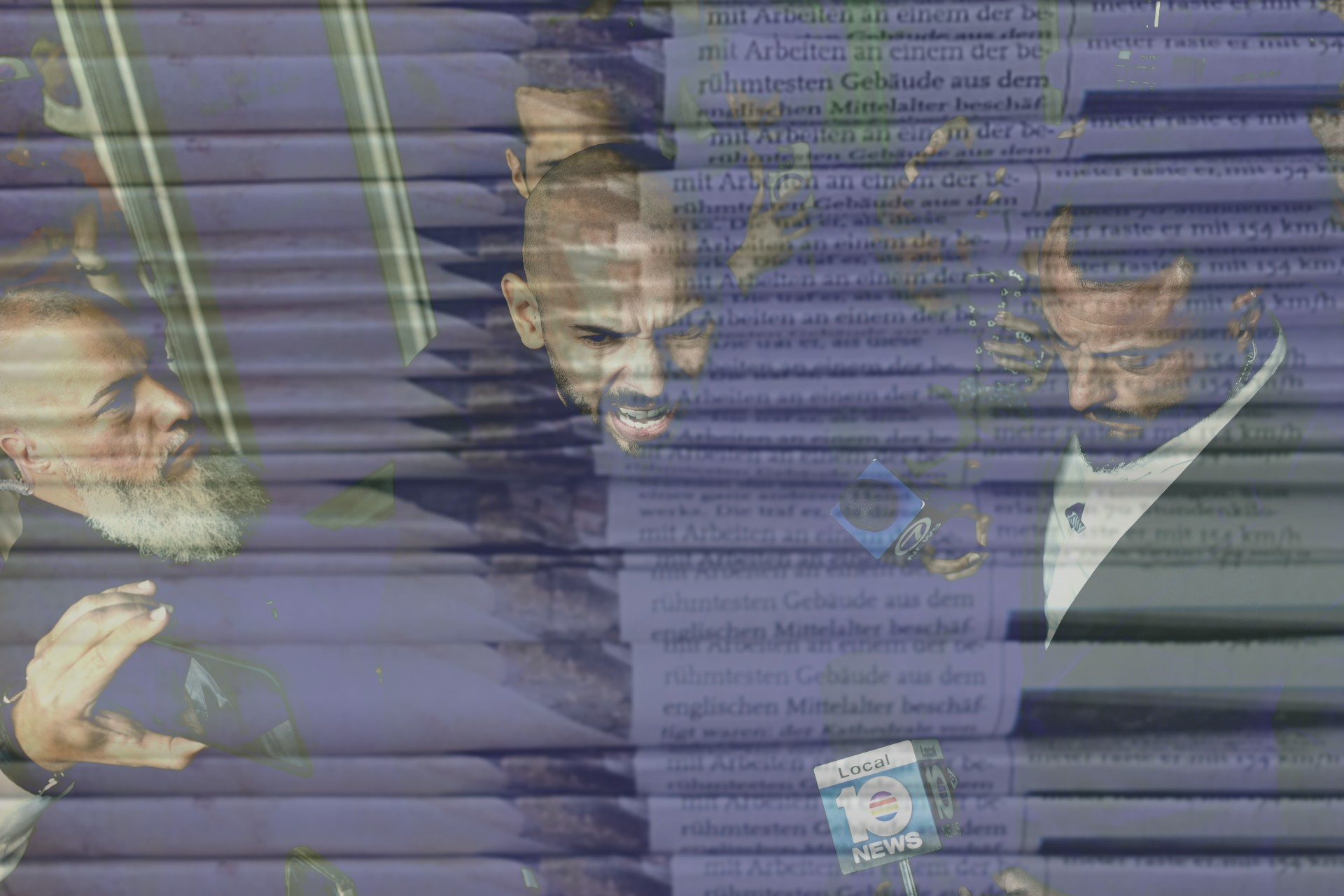

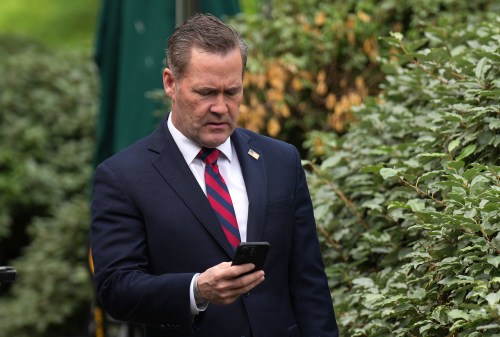

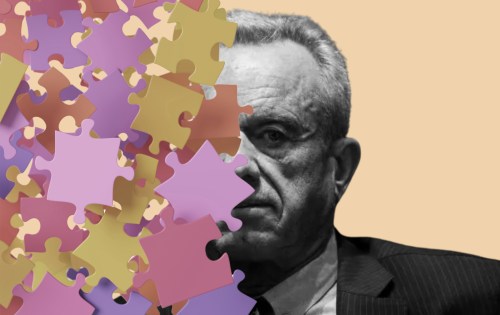
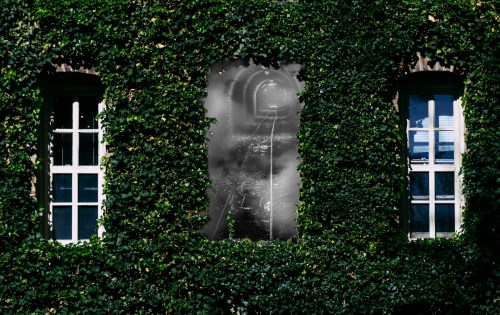

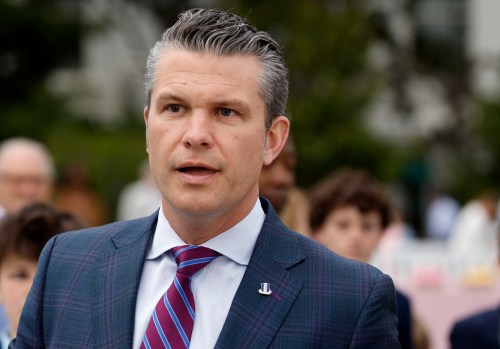
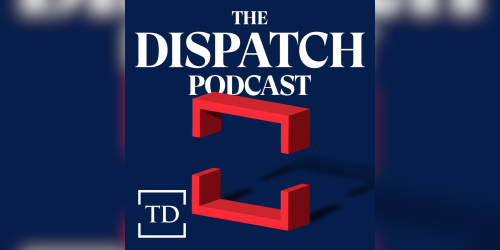


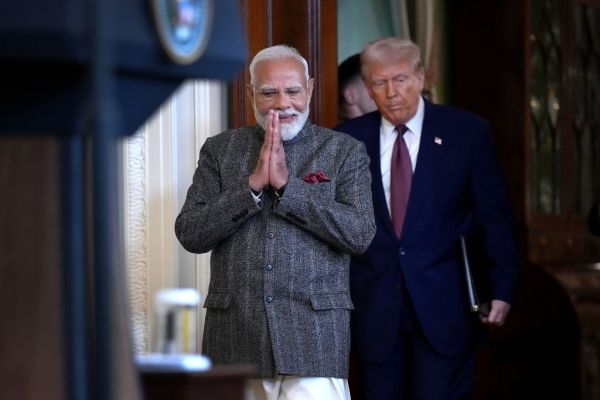
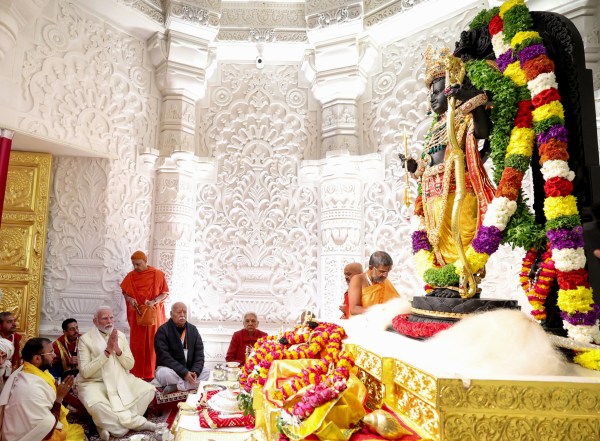
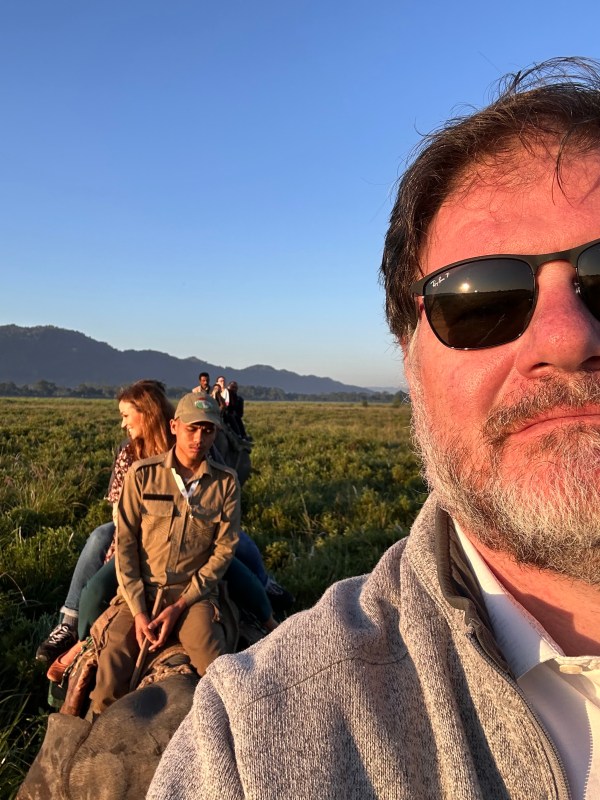

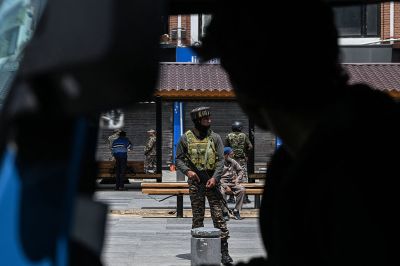
Please note that we at The Dispatch hold ourselves, our work, and our commenters to a higher standard than other places on the internet. We welcome comments that foster genuine debate or discussion—including comments critical of us or our work—but responses that include ad hominem attacks on fellow Dispatch members or are intended to stoke fear and anger may be moderated.
With your membership, you only have the ability to comment on The Morning Dispatch articles. Consider upgrading to join the conversation everywhere.